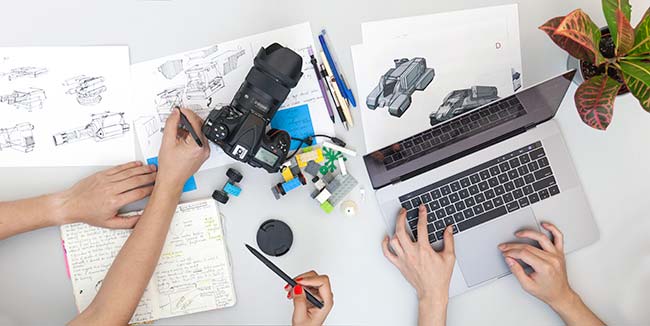We're moving! This site will be relocating to goingto.university in 2026. Please update your bookmarks to the new address.


Making a career in the Digital Media industry requires a complex set of talents, drawing on a range of skills encompassing science and technology and art and design.
Digital Media includes everything from virtual and augmented reality to digital entertainment and games to e-learning. It also includes data visualization, interactive storytelling, mobile applications and digital healthcare. All of these fields require both technical skills (‘hard’ skills) such as programming, design and animation; and nontechnical skills (‘soft’ skills) such as team building, goal setting and project management.
Given this unique nature of the industry, it is important that certain necessary skills are not overlooked. When The Centre for Digital Media established their Master of Digital Media program in 2006, they worked closely with the digital media industry to identify skill gaps in the workforce and tailored the contents of their MDM program to prepare students to fill these gaps.
The following 6 skills are key success factors identified by the Centre for Digital Media for people entering the digital media workforce as necessary for people who want to advance their digital media careers. These are the skills that are taught in the Master of Digital Media as an approach to building, managing and leading digital media projects.
Click this image to enlarge it
1. Design Process
Understanding the design process is important for everyone on a digital media team. Whether you’re the project manager, programmer or designer, it’s important to know concepts like pipeline creation, rapid prototyping and ideation. Understanding the entire process will allow you to manage your role on the team and empathize with your team members – crucial for a cohesive, effective team.
2. Self-Awareness
Being self-aware of your own work and role on a digital media project is essential. Knowing how to set your own goals, being able to self-reflect, and document your work means that you understand your strengths and weaknesses, and can play to your assets while working on improving areas where you’re not as strong.
3. Time Management
Time management is important for any industry, but especially one as fast-paced as digital media. Being able to scope a project, set measurable goals and follow a pipeline can be the difference between missing a deadline and shipping on time.
4. Articulation
The ability to articulate your ideas – to your team, your bosses and your clients – is an incredibly important skill. The ability to pitch your ideas clearly and concisely, understanding good body language and the ability to express your ideas in both written and spoken form means that your ideas will be heard and respected.
5. Information Literacy
Understand the digital media landscape and thinking broadly in terms of where it is going is another key success factor. Knowing creative rights so that you’re not breaking copyright law, understanding where the industry and technology is headed and who your competition is – all of this will put you way above your peers.
6. Teamwork
Teamwork is the most important skill you can bring to the table in the digital media industry. Being able to listen to others, trust fellow team members, resolve conflicts, and manage roles and responsibilities is crucial to the success of any team project.
Read more about the Centre for Digital Media here. Interested in learning more about how the Master of Digital Media program teaches these skills? Check out the MDM Core Competencies or get in touch with the Student Recruitment Coordinator at the Centre for Digital Media.
Learn more about Centre for Digital MediaThe latest articles from study abroad providers and StudyLink.com to hep you on your study abroad journey.
See more articlesRead our key advice article to help you make the best decision for your education and start your International study adventure.

In this article we look at how to approach choosing where in the world you would like to study.

Read StudyLink's suggestions on your first steps when deciding where to study abroad, with helpful tips to make your decision easier.

Find out more about English language tests, your options and what is required as an overseas student.

StudyLink.com take a detailed look into the costs of studying abroad and all the aspects that you should budget for when embarking on your studies.

We answer 10 common questions about applying for a student visa to help make your visa application quick and easy.

Find out more about international student visas for studying abroad, as well as how, where and when to apply for yours.

Find out more about funding and scholarships for international students, and what financial assistance might be available to you.

How to choose a course that fits you? Check our top tips on choosing which course is best for you to help you make an informed decision.
Join the StudyLink email list and never miss a chance to turn your study abroad dreams into reality!
